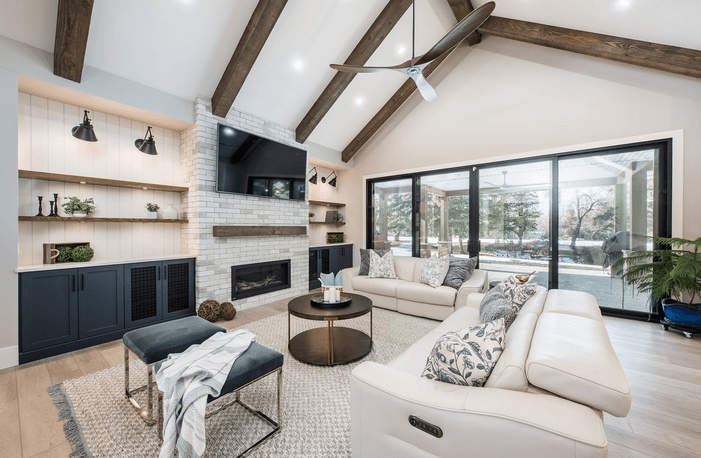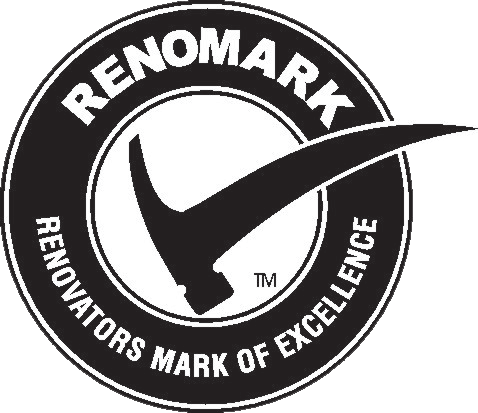In the intricate home renovation and construction world, embarking on a complex project can feel overwhelming. Whether you're expanding your living space or breathing new life into an outdated kitchen, the scope of work can be daunting. This is where hiring a general contractor becomes invaluable. A professional general contractor not only brings expertise and efficiency but also ensures that every aspect of your project is handled with precision and care. By hiring a contractor, homeowners can expect a streamlined process, where the coordination of different trades, adherence to building codes, and timeline management are expertly supervised. This leads not only to improved quality and safety but also to a significant reduction in project-related stress. This comprehensive guide is designed to walk you through the entire journey, from the initial concept to the final touches, empowering you with the knowledge necessary to partner effectively with a general contractor. By understanding each step along the way, you can maximize satisfaction and achieve the home of your dreams with confidence and peace of mind.
Why Work with a General Contractor?
Hiring a general contractor offers a multitude of advantages that can transform your renovation dream into a reality. Contractors bring a wealth of expertise to the table, having honed their skills through years of hands-on experience. They are adept at project management, overseeing everything from scheduling to execution, ensuring projects run smoothly and efficiently. Their deep industry knowledge allows them to navigate the complexities of construction codes, permit processes, and safety regulations with ease. Additionally, seasoned contractors have established connections with reliable subcontractors and vendors. This network can be invaluable, providing access to trustworthy professionals and quality materials that might not be available to the average homeowner.
When to Consider a General Contractor for Your Project
There are specific projects where the involvement of a general contractor is particularly beneficial. Full home remodels, custom builds, and complex renovations are prime examples where their expertise can make a significant difference. These projects often require coordination of multiple trades, meticulous planning, and adherence to tight schedules, all of which a general contractor is equipped to manage. Conversely, attempting to handle these tasks independently can lead to potential pitfalls, such as unexpected delays, budget overruns, and compromised quality. When facing such massive undertakings, enlisting a general contractor mitigates these risks and ensures that the project is completed to the highest standard.
Key Advantages of Hiring a General Contractor
Safety: A general contractor prioritizes safety by adhering to all relevant safety regulations and standards, ensuring a secure working environment. Their experience minimizes the risk of accidents and injuries on the job site, protecting both the workers and the homeowners.
Efficiency: With their expertise in project management, general contractors streamline operations, optimize schedules, and efficiently allocate resources. This coordinated approach reduces downtime and accelerates project timelines, saving time and money.
Expertise: General contractors possess a strong understanding of construction methods and techniques, allowing them to overcome challenges and prevent common issues that might arise during a project. Their expertise ensures that the work is done correctly and meets high standards of quality.
Cost-Effectiveness: Contractors typically have established relationships with suppliers, which can lead to discounts on materials and services. Additionally, their ability to foresee potential problems and implement effective solutions can help avoid costly delays and modifications.
Streamlined Communication: As the central point of contact, a general contractor facilitates clear and consistent communication between all parties involved, including subcontractors, suppliers, and the homeowner. This ensures that everyone stays informed and aligned with the project's goals.
Peace of Mind: Hiring a general contractor reduces the stress and burden of managing a construction project. Homeowners can rely on their contractors to handle the details, making the process more enjoyable and less overwhelming.
Finding the Right General Contractor
Setting Project Goals and Budget
Before diving into the search for a general contractor, it's essential to have a clear understanding of your project's goals and budget. Defining the project scope involves outlining what you want to achieve, whether it's a renovated kitchen, additional living space, or a complete home makeover. Set realistic goals by considering the time frame, materials, and potential challenges that could arise. An early budget estimation helps prevent financial surprises later and guides your discussions with potential contractors. Researching average costs for similar projects in your area can provide a solid foundation for your budget planning.
What to Look for in a Contractor
Choosing the right contractor is crucial to ensuring successful outcomes when embarking on a construction or renovation project. Here are some key factors to consider when selecting a contractor:
Experience: Look for contractors with a solid track record and extensive experience in your specific type of project.
Reputation: Check online reviews, testimonials, and references to gauge the contractor's reputation within the community.
Communication: A good contractor should be easy to communicate with, provide clear updates and be responsive to your questions.
Detailed Estimates: Request detailed cost estimates and compare them to ensure transparency and avoid hidden fees.
Portfolio of Work: Review their previous projects to assess the quality of their work and see if their style aligns with your vision.
Timeline: Discuss the expected timeline for the project and ensure the contractor can meet your deadlines.
Conducting interviews with prospective contractors will help gauge their compatibility with your project vision. Prepare a list of questions that cover their experience with similar projects, how they manage timelines and budgets, and the subcontractors they usually work with. Inquire about their approach to handling unforeseen issues or changes during the construction process. It's wise to get multiple quotes to compare not just prices but each contractor's methodologies and solutions. This assessment will help ensure you choose a contractor whose style and professionalism align with your expectations, ultimately leading to a successful and stress-free project.
Planning the Project
Working closely with your contractor to develop a well-documented project plan is vital for transforming your initial ideas into actionable steps. Begin by sharing your vision in detail to ensure that the contractor fully understands your goals and expectations. Together, outline the specific timelines, milestones, and budget constraints that will guide the project's execution. Establishing a clear schedule that reflects each phase of the project will help keep everyone accountable and aware of progress. Regular meetings and open lines of communication are essential to align expectations, address any changes promptly, and maintain a collaborative momentum throughout the project's lifecycle.
Understanding the Contract
A comprehensive contract is the foundation of a successful collaboration between you and your contractor. Before signing, ensure the contract delineates the project scope, including detailed descriptions of the work to be done, the materials to be used, and the results expected. Timelines should be realistic yet firm, providing a schedule for project stages and completion. Payment schedules need to be agreed upon, often coinciding with the achievement of specific milestones. It's crucial to include contingency plans to address unforeseen circumstances or changes, protecting both parties' interests. Thoroughly review the contract and ask questions about any uncertainties to ensure mutual understanding and clear expectations before commencing the project.
Creating a Realistic Project Budget
Establishing a realistic budget is a crucial step in ensuring the successful completion of your construction or renovation project. Begin by conducting thorough research to understand the average costs associated with each aspect of your project. Break down the total budget into categories such as labour, materials, permits, and unforeseen expenses. Obtaining detailed estimates from potential contractors will aid in refining these categories. Consider also allocating a contingency fund, typically around 10-15% of the overall budget, to cover unexpected costs or alterations to the project scope. Throughout the process, maintain open communication with your contractor to reassess and adjust the budget as necessary, ensuring it remains aligned with your goals and financial capacity.
Managing Expectations and Common Challenges
Communication is paramount to keeping a construction project on track and ensuring it progresses according to your expectations. Regular updates and progress reports are vital in maintaining a clear line of understanding between you and your contractor. Schedule periodic meetings to discuss the project's current status, upcoming milestones, and any changes that might be necessary. Detailed reports should include updates on timelines, financial standing relative to the budget, and any issues or delays encountered. By staying informed, you can make timely decisions that prevent minor hiccups from becoming major setbacks, maintaining momentum and alignment with your initial objectives.
Handling Unexpected Challenges
Unexpected challenges are a common aspect of construction or renovation projects. Hidden structural issues or unforeseen supply chain delays can arise, potentially disrupting the project timeline and budget. A proficient contractor will anticipate such occurrences and have contingency plans ready to implement. These might include access to alternative suppliers or flexible scheduling arrangements to accommodate delays. Foster an environment of transparent communication, where your contractor feels comfortable informing you of these surprises as soon as they arise. This proactive approach allows you both to collaboratively work through problems, adjust plans accordingly, and ensure the project continues to move forward efficiently, with minimal disruption to your initial goals.
The Construction Process
The project kick-off marks the official start of the construction phase. Initial meetings set the tone for successful project execution, where both parties finalize and agree on expectations and goals. During these meetings, it is crucial to establish clear communication channels. Whether through scheduled weekly meetings, progress emails, or a dedicated project management platform, maintaining open lines of communication ensures that all team members are aligned and any potential issues are promptly addressed.
Timeline and Scheduling
Understanding the timeline is crucial for the project's progression. It includes identifying key milestones and deadlines that guide the construction process. A detailed project schedule will outline each phase, including buffer times for potential delays. Delays are managed by having contingency plans in place, such as adjusting work sequences or sourcing alternative materials, to mitigate their impact. Regular updates on scheduling ensure that you remain informed and can contribute to decision-making when necessary adjustments arise.
Site Management and Safety
Maintaining a safe and organized worksite is paramount to ensuring a smooth construction process. Protocols for site management include regular safety inspections, clear signage, and mandatory safety gear for all workers. The contractor is responsible for implementing and enforcing these safety measures to reduce the risk of accidents. Additionally, an organized site enhances workflow efficiency by ensuring materials and tools are accessible and reducing idle time, contributing to overall productivity.
Quality Control Measures
Quality control measures are essential to ensure that all work performed meets the established standards and specifications. Regular inspections during and after each construction phase serve to identify and rectify any issues early. Key aspects of quality control include adherence to design plans, structural integrity checks, and finishing details. By ensuring each phase meets the highest standards, you lay the groundwork for a successful completion that aligns with your vision and expectations.
The Project Closeout
The closeout process is a critical phase that marks the completion of a construction project. This stage involves thorough final inspections to ensure that all work complies with contractual obligations and quality standards. Engage both the contractor and an independent inspector to validate the project's completion. Documentation is key during closeout; gather all necessary paperwork, including final invoices, compliance certifications, and as-built drawings.
Additionally, the handover of warranties is an essential step. Ensure that you understand the scope and terms of warranties for materials and workmanship, as these protect against post-project defects or failures. Familiarize yourself with the procedure for addressing any issues that may arise after the project is concluded. Establish a clear line of communication with the contractor to address any future concerns, ensuring long-term satisfaction with your completed project.
Conclusion
Completing a construction or renovation project involves strategic planning, meticulous quality control, and effective communication. By establishing clear communication channels and adhering to project timelines, you can smoothly navigate the complexities of construction. The coordination of subcontractors and tradespeople underscores the importance of teamwork and mutual understanding in achieving project goals. Prioritizing site management and safety not only protects workers but also enhances productivity, ensuring the project progresses without unnecessary interruptions. Implementing rigorous quality control measures throughout the construction phases secures the structural integrity and adherence to design specifications, preventing costly rectifications post-completion. Ultimately, the success of a project is reflected in a thorough closeout process, consisting of final inspections, documentation, and warranty handovers, all leading to a satisfying and robust conclusion to your construction endeavour.
Starting a construction or renovation project is a major decision that transforms spaces and improves living or working environments. Diamond Contracting understands the complexities involved and is here to guide you every step of the way. Whether you're in the planning stages or ready to begin, our team is prepared to turn your vision into reality. Begin your journey from concept to completion today by filling out our Online Form and getting in touch today.
















